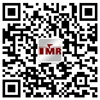Topic: Corrosion Protection of High Temperature Light Weight Materials
Speaker: Prof. Michael Schuetze
DECHEMA-Forschungsinstitut, Germany
Abstract:
Recently a dynamic development of new light weight alloys for technical applications at temperatures above 800°C has set in with material densities significantly lower than those for the currently used high alloy steels and Ni-base alloys. The driving forces come from automotive and aircraft industries where even for high temperature applications light weight materials are desired. These alloys based on chromium or intermetallic titanium aluminides show, however, only rather limited high temperature corrosion resistance in air or combustion environments so that additional protection measures have to be taken. For titanium aluminides the so-called halogen or minimal invasive corrosion protection effect has been established. This surprising effect that requires only a simple and low cost surface treatment has been developed to a technological level and is at the steps of practical implementation. Furthermore, it is also now understood from a scientific perspective, be it for the initiation phase at the beginning of high temperature exposure or be it for the maintenance phase in operation. For chromium based materials the alloy composition has to be modified by adding certain elements on a low concentration level, thus, preventing the undesired extensive nitridation attack at high temperatures. In the lecture the scientific aspects of high temperature corrosion protection as well as the technological aspects will be addressed in detail for these new groups of materials.
Prof. Michael Schuetze is chairman of the executive board of DECHEMA-Forschungsinstitut in Frankfurt/Main and holds a professorship at RWTH Aachen University. His personal research areas are high temperature materials and protective coatings with focus on corrosion and corrosion resistance. He is author/ co-author of about 500 scientific publications, editor of several scientific books and member of 6 editorial boards of scientific journals on corrosion. He is Past President of the World Corrosion Organization (WCO) and of the European Federation of Corrosion (EFC), and member of several German and international scientific committees. His research has been acknowledged by a number of national and international awards.



